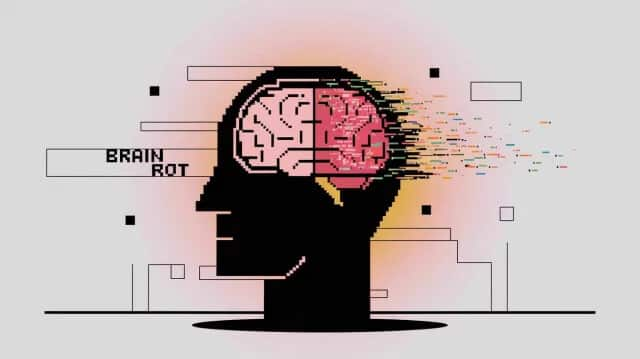Oxford University Press crowns 'brain rot' word of the year
What's the story
The term "brain rot" has been named the Word of the Year for 2024 by Oxford University Press, the publisher of the Oxford English Dictionary (OED).
The phrase describes the perceived decline in mental/intellectual ability due to excessive consumption of social media content with no coherent narrative.
Its increased usage this year—especially concerning overindulgence in low-quality online content on social media—resulted in its selection.
Voting details
Selection process and public participation
The selection process included analyzing a corpus of around 26 billion words from news sources from across the English-speaking world.
The analysis was done to identify the "moods and conversations that have shaped 2024," according to The New York Times.
More than 37,000 people cast a public vote to select the Word of the Year from a shortlist of six contenders released by Oxford University Press.
Shortlist
Other contenders for Word of the Year
The shortlist for the Word of the Year included other terms like 'demure,' 'dynamic pricing,' 'lore,' 'romantasy,' and 'slop.'
Each of these words has its own unique cultural significance.
For example, 'demure' was popularized by a social media movement that promoted reserved behavior during summer, while 'dynamic pricing' refers to price changes based on demand.
Meanwhile, 'lore' refers to background information about people or topics, 'romantasy' is a genre combining romance and fantasy, and 'slop' describes low-quality, AI-generated online content.
Inclusion status
'Brain rot' yet to be included in OED
Despite being named the Word of the Year, 'brain rot' is not a part of the OED.
This is the case with past winners too, like 'rizz' and 'goblin mode,' which were selected as words of the year in 2023 and 2022, respectively but are also not included in the dictionary.
The OED looks for evidence of sustained and widespread usage before adding a word.
Other dictionaries
Cambridge Dictionary's Word of the Year
In other news, Cambridge Dictionary has selected 'manifest' as its Word of the Year for 2024.
The term is linked to a wellness practice in which people visualize achieving their goals to make them easier to achieve.
It has been searched over 130,000 times on the Cambridge Dictionary website this year.
